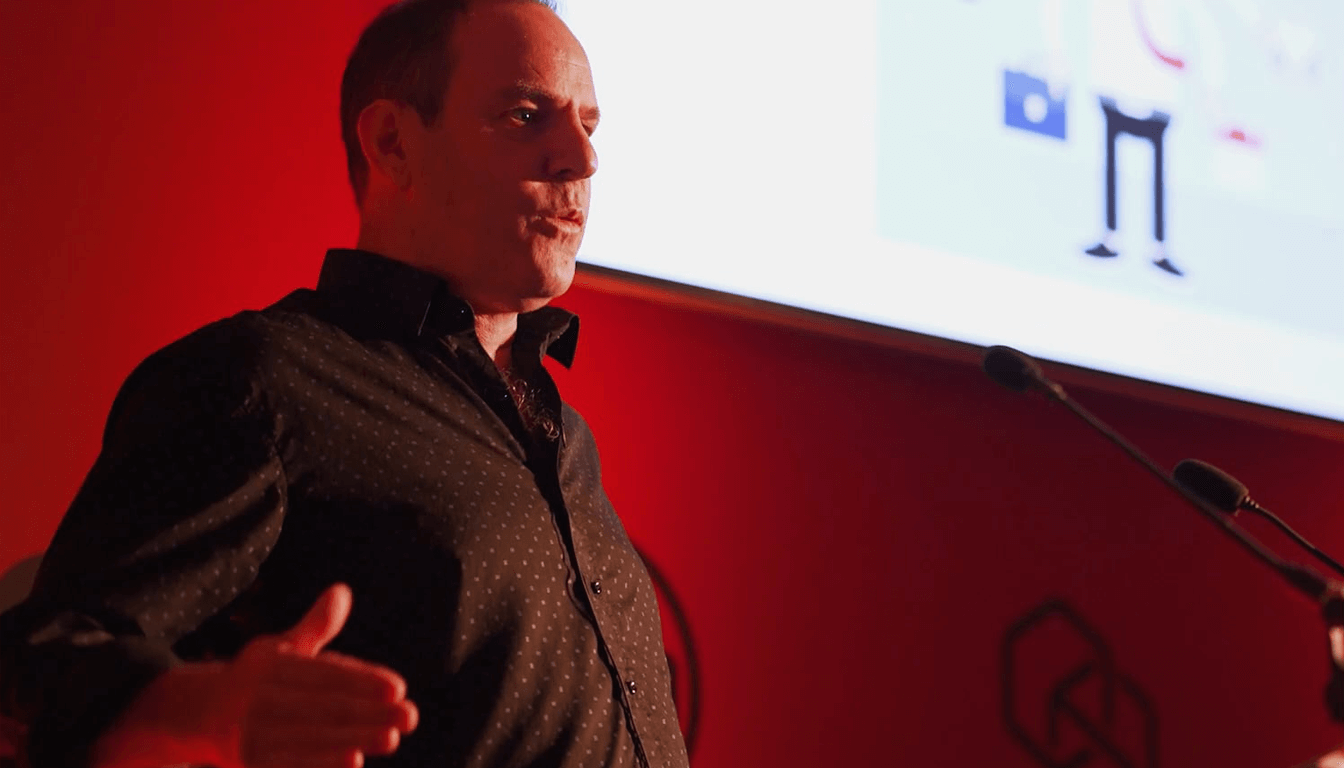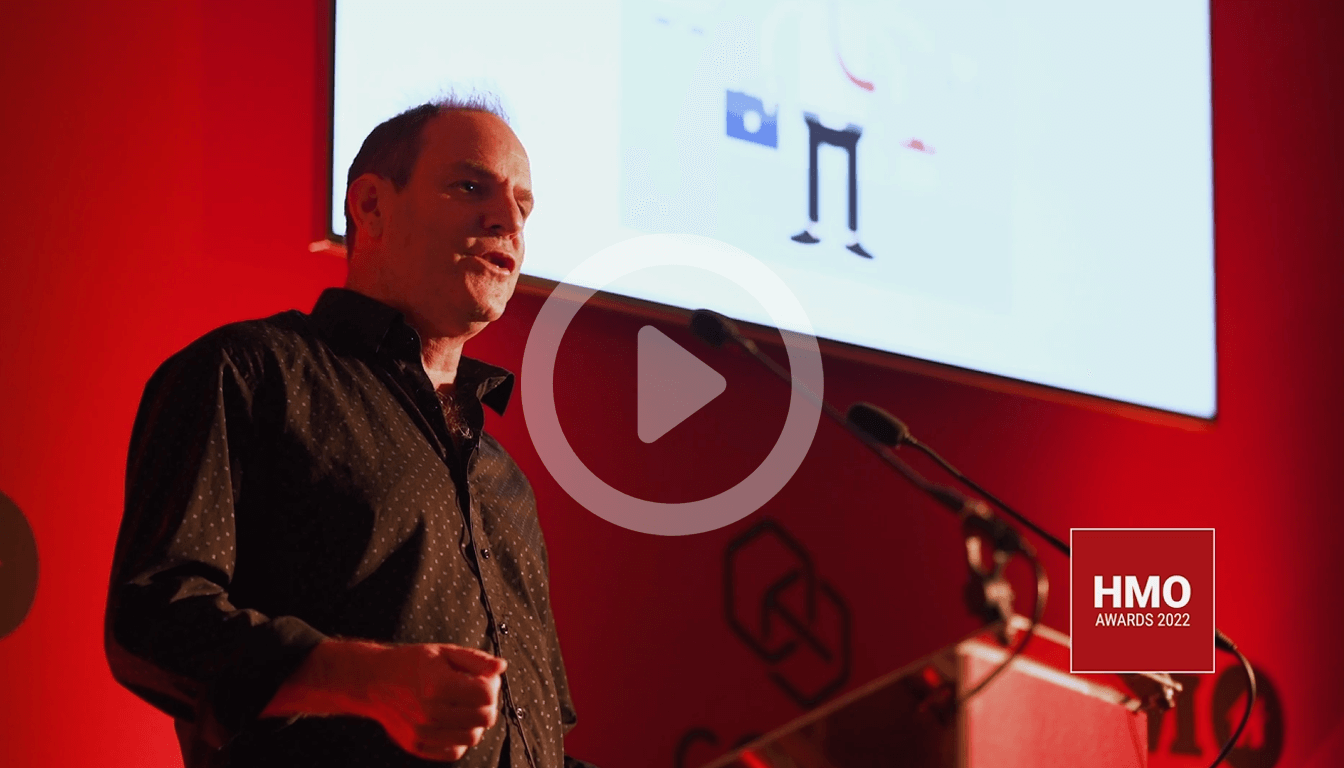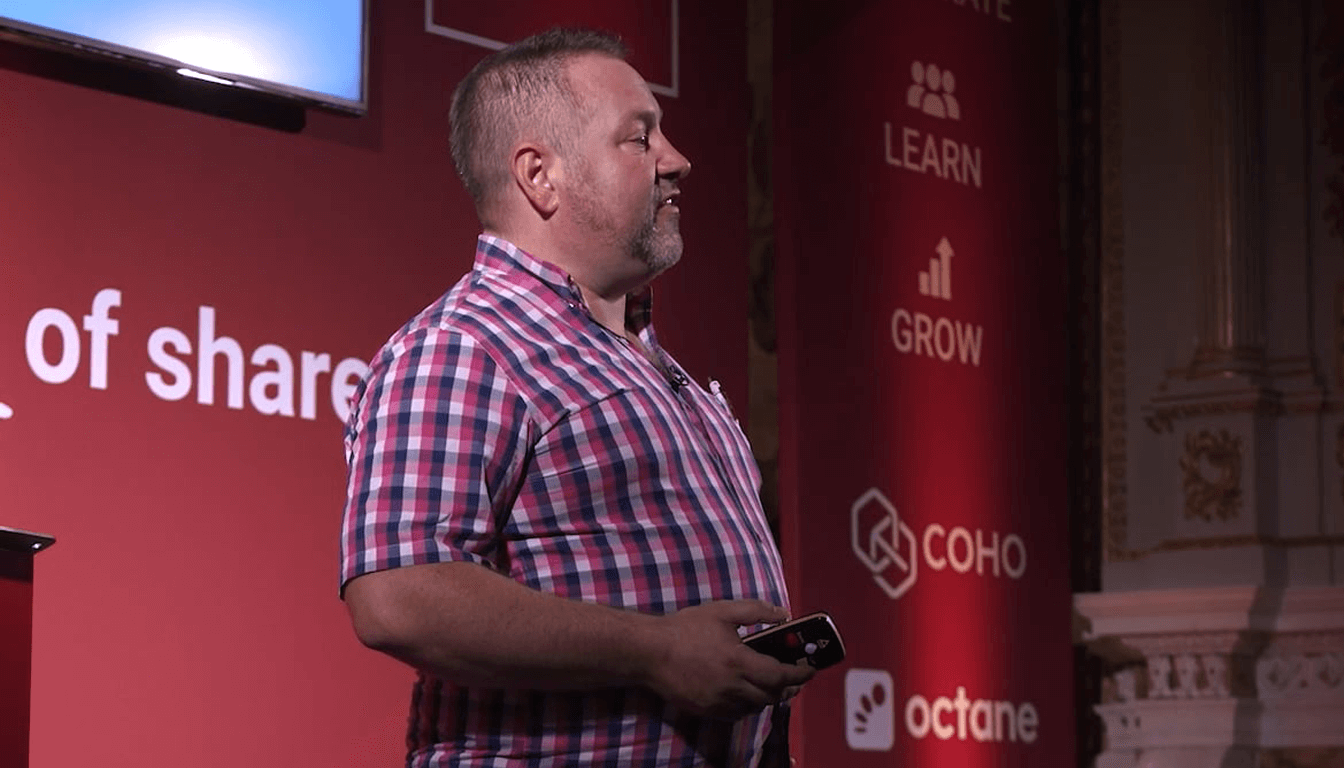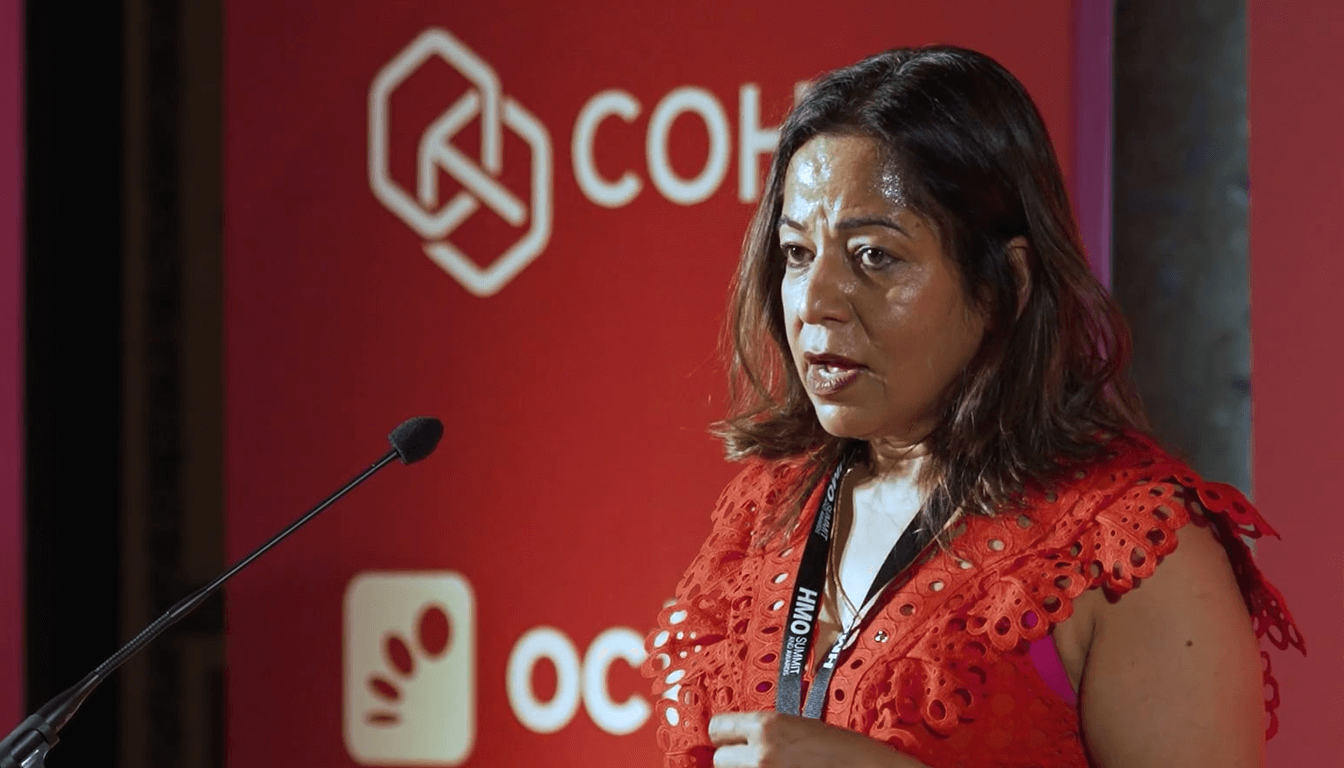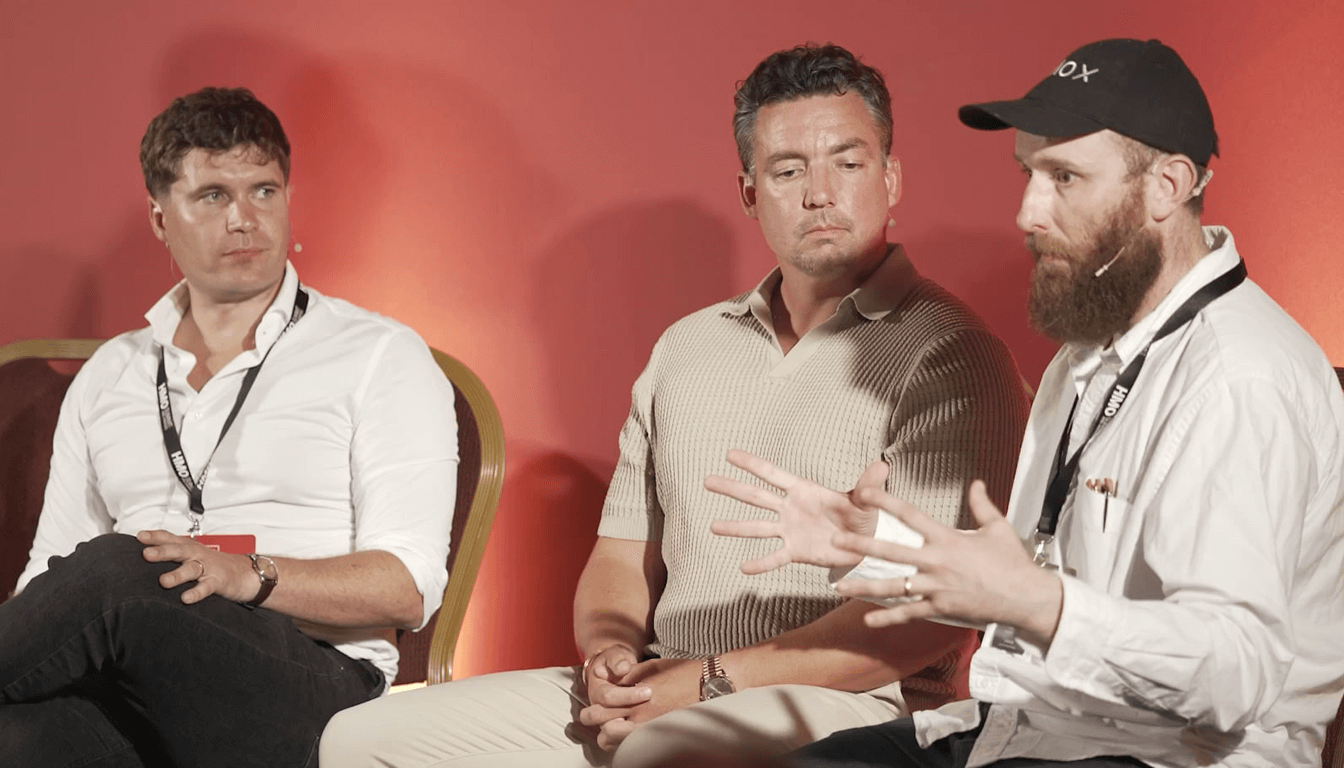Growing a portfolio of HMOs in different cities comes with one huge logistical challenge—how do you manage them without constantly being on the road or sacrificing tenant experience? For Grant Amos, the answer wasn’t outsourcing to agents, but building a dependable local support network—what he calls his “local heroes.”
In this detailed breakdown of his talk at the HMO Awards 2022, we uncover how Grant transitioned from the corporate world into property investment, scaled across multiple cities while retaining control, and now manages his portfolio with the help of a remote-first HMO support team. His story is a powerful blueprint for any hands-on landlord looking to grow without compromising on tenant quality or service.
From Recruitment Consultant to HMO Operator
Grant’s journey into property wasn’t a straight line. Like many, he came from a traditional corporate background—working in a fast-paced recruitment firm. But as he approached 40, the long commute, growing family responsibilities, and lack of enthusiasm for the corporate ladder pushed him to look for something more flexible and fulfilling.
After a year of exploring various franchise opportunities, he stumbled upon a property-focused franchise addressing mold and condensation issues in homes. It resonated because one of his own London rentals had suffered similar problems. This pivot became his first entry into the world of property and gave him the first-hand experience he needed to think bigger.
Soon after, Grant discovered HMOs and was captivated by the idea of “supercharged returns.” He began acquiring properties near hospitals, a strategic decision to ensure steady tenant demand—even in economic downturns. But as his portfolio grew, so did the geographical spread—and the headaches.
The Logistical Challenge of Scaling Across Cities
Grant’s HMOs were in Guildford, Farnborough, Portsmouth, and eventually Bristol—all chosen for their proximity to large hospitals. While the strategy made sense financially, the practical reality of managing properties spread across hundreds of miles didn’t.
He found himself constantly on the road—driving for inspections, viewings, and maintenance check-ins. What was meant to offer more work-life balance turned into another full-time job with endless travel. It became clear: something had to change.
Why He Didn’t Use Letting Agents
At this point, most landlords might turn to letting agents. But Grant made a deliberate decision not to. Why?
Because for him, HMOs are about people—and he wanted full control over who moved in. Tenants aren’t just numbers; they shape the household culture and influence retention, cleanliness, and referrals. Handing over control to agents meant losing the ability to carefully vet and match tenants to his brand’s community ethos.
Instead, Grant chose to self-manage—with help.
The Local Hero Model: Building a Ground Team Without Being There
Grant’s solution was brilliantly simple: find a trustworthy local person in each city to act as his on-the-ground support—his “local hero.” Someone who could handle viewings, check-ins, inspections, and basic troubleshooting. Someone who knew the area, was flexible, and wanted part-time work.
To find them, his wife turned to Mum’s Net and local Facebook groups. The logic? There are plenty of capable mums (and others) looking for flexible side gigs. The results were better than expected.
In Bristol, for example, they found Steph—a mum of four—who’s now been working with them for over three years. She handles inspections and viewings, and even taps into her local network to find trustworthy tradespeople.
This local hero model gave Grant and his team their time back. No more endless drives. No more missed school runs. And most importantly—it made scaling possible.
Sourcing & Retaining a Quality Trades Network
Grant also realized that good tradespeople—plumbers, electricians, handymen—often don’t advertise online. They’re “below the radar,” and the best way to find them is through hyper-local networking. He used platforms like Nextdoor, local buy/sell groups, and word of mouth to build this network.
But finding them is only the first step. Retaining them is about value.
Grant shared a story about Mark, a maintenance guy whose van broke down. Rather than reschedule the job, Grant offered him a spare van. That one act of trust and generosity forged a long-term relationship. Now, Mark prioritizes his properties—even in emergencies.
This principle applies across Grant’s network: pay fairly, show appreciation, treat them like people—not commodities—and you’ll build a loyal, responsive team.
Rebranding Cleaners as Housekeepers
One of the biggest challenges for HMO operators is finding and keeping reliable cleaners. Grant’s approach? Reframe the role.
He refers to them as housekeepers and gives them broader responsibilities. This small shift boosts their sense of importance, helps them align with the property’s values, and increases retention. While it doesn’t work for everyone, some of his housekeepers have stayed with him for over three years—an impressive feat in a high-turnover role.
Your Tenants Are Your Secret Weapon
Perhaps the most underutilized resource in any HMO is the tenants themselves.
Grant treats tenants like clients—not just renters. He engages them in the tenant selection process, asking existing housemates to meet and vet potential new residents. His simple rule of thumb? If he wouldn’t have the applicant as a lodger in his own home, they don’t get forwarded for interview.
This not only empowers existing tenants but fosters stronger communities. It also drastically reduces tenant conflict and turnover, as housemates are more likely to get along when they’ve had a say in the selection process.
And yes—tenants even conduct viewings in many cases, making the process seamless and scalable.
Systems and Tools That Power Remote Management
Technology underpins the entire operation. Some key tools Grant uses:
- Virtual Tours: Before any tenants move in, they record a virtual tour of each property. This allows remote viewings, especially for overseas tenants, and reduces wasted time from poor fit applicants.
- Notes Templates & WhatsApp: Every onboarding step is templated and mobile-friendly. Tenants or local heroes send required info via WhatsApp, and Grant handles contracts, cleaning, and move-ins remotely.
- Signable for Agreements: Digital signatures make it possible to complete contracts from anywhere.
- Inspire Thermostats: This smart system allows them to control and monitor heating remotely—crucial for managing energy costs in today’s climate.
These systems allow Grant to manage dozens of tenants and properties—without being physically present at most of them.
Redefining Remote HMO Management
If someone approached Grant today with a great HMO deal in Manchester, he wouldn’t blink. He’d simply replicate his process: recruit a local hero, build a local team, and plug it into his existing systems.
This is what sets his model apart: it’s scalable, efficient, and tenant-centric. By keeping management in-house, he maintains control over tenant selection and experience—while still enjoying the freedom and flexibility that remote systems provide.
Final Thoughts: Value Your People, Scale with Trust
At the heart of Grant’s philosophy is one word: value.
- Value your tradespeople—don’t treat them like replaceable parts.
- Value your cleaners—elevate their role and respect their time.
- Value your tenants—they are your frontline team, community builders, and biggest asset.
- Value your time—use systems, local heroes, and smart tech to scale without burning out.
By leading with value, trust, and clear systems, you can build an HMO empire without ever leaving your kitchen.
Growing a portfolio of HMOs in different cities comes with one huge logistical challenge—how do you manage them without constantly being on the road or sacrificing tenant experience? For Grant Amos, the answer wasn’t outsourcing to agents, but building a dependable local support network—what he calls his “local heroes.”
In this detailed breakdown of his talk at the HMO Awards 2022, we uncover how Grant transitioned from the corporate world into property investment, scaled across multiple cities while retaining control, and now manages his portfolio with the help of a remote-first HMO support team. His story is a powerful blueprint for any hands-on landlord looking to grow without compromising on tenant quality or service.
From Recruitment Consultant to HMO Operator
Grant’s journey into property wasn’t a straight line. Like many, he came from a traditional corporate background—working in a fast-paced recruitment firm. But as he approached 40, the long commute, growing family responsibilities, and lack of enthusiasm for the corporate ladder pushed him to look for something more flexible and fulfilling.
After a year of exploring various franchise opportunities, he stumbled upon a property-focused franchise addressing mold and condensation issues in homes. It resonated because one of his own London rentals had suffered similar problems. This pivot became his first entry into the world of property and gave him the first-hand experience he needed to think bigger.
Soon after, Grant discovered HMOs and was captivated by the idea of “supercharged returns.” He began acquiring properties near hospitals, a strategic decision to ensure steady tenant demand—even in economic downturns. But as his portfolio grew, so did the geographical spread—and the headaches.
The Logistical Challenge of Scaling Across Cities
Grant’s HMOs were in Guildford, Farnborough, Portsmouth, and eventually Bristol—all chosen for their proximity to large hospitals. While the strategy made sense financially, the practical reality of managing properties spread across hundreds of miles didn’t.
He found himself constantly on the road—driving for inspections, viewings, and maintenance check-ins. What was meant to offer more work-life balance turned into another full-time job with endless travel. It became clear: something had to change.
Why He Didn’t Use Letting Agents
At this point, most landlords might turn to letting agents. But Grant made a deliberate decision not to. Why?
Because for him, HMOs are about people—and he wanted full control over who moved in. Tenants aren’t just numbers; they shape the household culture and influence retention, cleanliness, and referrals. Handing over control to agents meant losing the ability to carefully vet and match tenants to his brand’s community ethos.
Instead, Grant chose to self-manage—with help.
The Local Hero Model: Building a Ground Team Without Being There
Grant’s solution was brilliantly simple: find a trustworthy local person in each city to act as his on-the-ground support—his “local hero.” Someone who could handle viewings, check-ins, inspections, and basic troubleshooting. Someone who knew the area, was flexible, and wanted part-time work.
To find them, his wife turned to Mum’s Net and local Facebook groups. The logic? There are plenty of capable mums (and others) looking for flexible side gigs. The results were better than expected.
In Bristol, for example, they found Steph—a mum of four—who’s now been working with them for over three years. She handles inspections and viewings, and even taps into her local network to find trustworthy tradespeople.
This local hero model gave Grant and his team their time back. No more endless drives. No more missed school runs. And most importantly—it made scaling possible.
Sourcing & Retaining a Quality Trades Network
Grant also realized that good tradespeople—plumbers, electricians, handymen—often don’t advertise online. They’re “below the radar,” and the best way to find them is through hyper-local networking. He used platforms like Nextdoor, local buy/sell groups, and word of mouth to build this network.
But finding them is only the first step. Retaining them is about value.
Grant shared a story about Mark, a maintenance guy whose van broke down. Rather than reschedule the job, Grant offered him a spare van. That one act of trust and generosity forged a long-term relationship. Now, Mark prioritizes his properties—even in emergencies.
This principle applies across Grant’s network: pay fairly, show appreciation, treat them like people—not commodities—and you’ll build a loyal, responsive team.
Rebranding Cleaners as Housekeepers
One of the biggest challenges for HMO operators is finding and keeping reliable cleaners. Grant’s approach? Reframe the role.
He refers to them as housekeepers and gives them broader responsibilities. This small shift boosts their sense of importance, helps them align with the property’s values, and increases retention. While it doesn’t work for everyone, some of his housekeepers have stayed with him for over three years—an impressive feat in a high-turnover role.
Your Tenants Are Your Secret Weapon
Perhaps the most underutilized resource in any HMO is the tenants themselves.
Grant treats tenants like clients—not just renters. He engages them in the tenant selection process, asking existing housemates to meet and vet potential new residents. His simple rule of thumb? If he wouldn’t have the applicant as a lodger in his own home, they don’t get forwarded for interview.
This not only empowers existing tenants but fosters stronger communities. It also drastically reduces tenant conflict and turnover, as housemates are more likely to get along when they’ve had a say in the selection process.
And yes—tenants even conduct viewings in many cases, making the process seamless and scalable.
Systems and Tools That Power Remote Management
Technology underpins the entire operation. Some key tools Grant uses:
- Virtual Tours: Before any tenants move in, they record a virtual tour of each property. This allows remote viewings, especially for overseas tenants, and reduces wasted time from poor fit applicants.
- Notes Templates & WhatsApp: Every onboarding step is templated and mobile-friendly. Tenants or local heroes send required info via WhatsApp, and Grant handles contracts, cleaning, and move-ins remotely.
- Signable for Agreements: Digital signatures make it possible to complete contracts from anywhere.
- Inspire Thermostats: This smart system allows them to control and monitor heating remotely—crucial for managing energy costs in today’s climate.
These systems allow Grant to manage dozens of tenants and properties—without being physically present at most of them.
Redefining Remote HMO Management
If someone approached Grant today with a great HMO deal in Manchester, he wouldn’t blink. He’d simply replicate his process: recruit a local hero, build a local team, and plug it into his existing systems.
This is what sets his model apart: it’s scalable, efficient, and tenant-centric. By keeping management in-house, he maintains control over tenant selection and experience—while still enjoying the freedom and flexibility that remote systems provide.
Final Thoughts: Value Your People, Scale with Trust
At the heart of Grant’s philosophy is one word: value.
- Value your tradespeople—don’t treat them like replaceable parts.
- Value your cleaners—elevate their role and respect their time.
- Value your tenants—they are your frontline team, community builders, and biggest asset.
- Value your time—use systems, local heroes, and smart tech to scale without burning out.
By leading with value, trust, and clear systems, you can build an HMO empire without ever leaving your kitchen.

